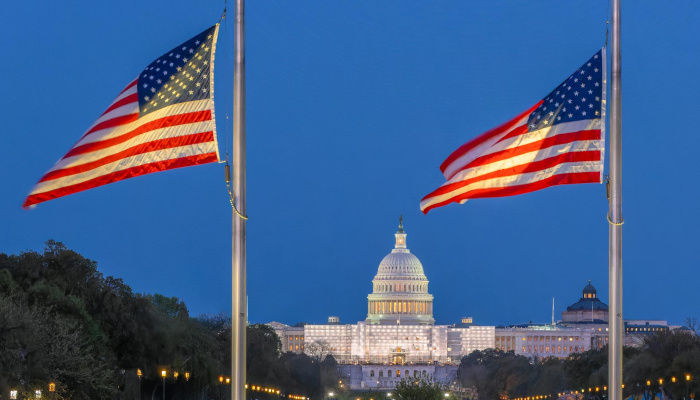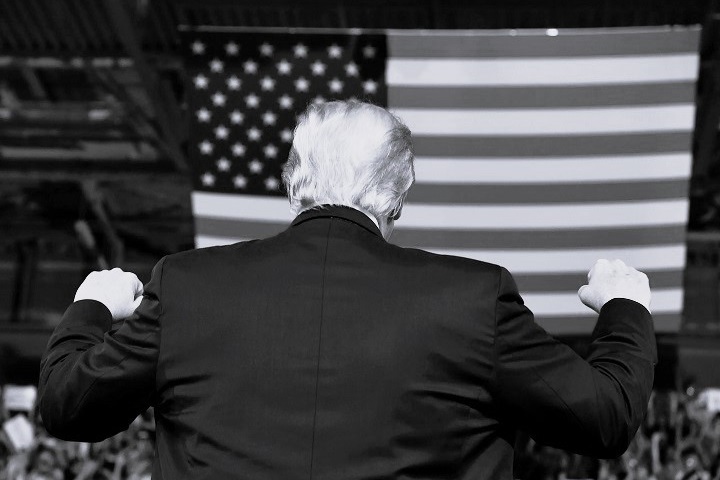
Does America need an exorcism? There is indeed an 80-year pattern in American history that has global implications. Every eight decades, the US faces an existential internal crisis that is overcome with war.
First, 1781
The Union itself started with such turmoil. The 1776-1883 Revolutionary War began as an effort to wrest the 13 colonies from the English crown’s embrace and then spilled into a global conflict among the great European powers for dominance over the seas and colonial territories.
France entered the war on the side of the Americans and, in alliance with Spain and the Dutch Republic, sought to challenge British dominance and gain revenge after defeat in the Seven Years’ War (1756-63). Britain, on the other hand, was able to strengthen its expeditionary force in America by recruiting numerous contingents of German mercenary troops, the so-called Hessians, cementing a special tie with Prussia that was to last until WWI.
Americans were not all united then. Some supported England and actively fought for the crown. There was a bitter division about the colonies’ future for independence or remaining part of the British empire.
Second, 1861
Some 80 years later, in 1861, America was torn apart over the social and economic problem of slavery. Modern factories in the North were better off with paid workers than slaves. Yet in the South, slaves were assets worth trillions (in today’s money) and a fundamental gear in cotton and sugar production, commodities driving industrialization at the time.
The country was split in two as a model of development and thus also as value systems. One part could benefit from the active participation of African Americans in the economy; the other part would have been devastated if blacks were to become free.
This was no isolated incident. In the same years, England, the superpower of the time, fought in India quelling the Sepoy Mutiny (1857) and bolstering its hold on the subcontinent. In China, it led the Second Opium War (1856-1860, with America and France) gaining major concession in the Qing Empire. It supported Piedmont in its war to conquer southern Italy (1861) against Austria and Russia. It sided with Italy and Prussia against Austria in the 1866 war.
Overall, it was a decade of global conflicts where England mistakenly chose to support the Southern Confederates against the Northern Unionists, who eventually emerged victorious in 1865. In a way, 1861 still had some roots in the War of Independence because there was still significant English involvement and because it addressed an unresolved issue – the rights of African Americans to freedom.
Third, 1941
America was bitterly riveted again in 1941 when it joined WWII. There was a very active and influential share of the country that was fascist and pro-Nazi.
Possibly America’s greatest poet, Ezra Pound, was a fascist and spent the war peddling anti-American propaganda in Italy. Charles Lindbergh, perhaps the most famous American of his time, was pro-Nazi and had campaigned against going to war with Germany.
On the other side, there was an active socialist and communist movement threatening the Union from the left. Racism against blacks or Jews was rampant and shameless.
African Americans were no longer slaves but were certainly not equal to the white majority. In the wake of the 1929 market crash and the Great Depression, with a record 25% unemployment rate, America was again on the cusp of a civil war. The divide was about its future. Should it get involved in European affairs and once more support Great Britain, or should it remain aloof?
The Pearl Harbor attack broke the deadlock and removed the fascists from the picture. The ensuing Cold War, after 1945, also subdued and diminished the socialist movement. It took WWII and the Cold War, spanning a total of 50 years, along with a bitter and sometimes violent civil rights movement in the 1960s and 1970s, to avoid a new civil war.
Fourth, 2021
If the time frame is correct, the fourth crisis is now and revolves around Donald Trump’s Maga movement and his presidential candidacy.
Like 80 years ago, the sitting president, then Roosevelt, now Joe Biden, is under siege from the right and a radical left, and he tries to find a balance. If history can be of any help, in the past three crises, the US moved forward with a painful victory for the progressive party.
It’s not clear whether it will be the same now.
Like in the past, there are growing shadows of global conflicts. The US is involved in two and a half wars (Ukraine against Russia, Israel against Hamas, and active patrol against Iran-backed Houthi in Yemen). It is also locked in tough competition with China, which has many flashpoints around its borders.
America is now more important to world balance than ever before, and it is easy to see how domestic tensions could spill into a significant war.
Trump made comments against NATO and in favor of Russian President Vladimir Putin; he also seems keen on portraying America in a state of total despair to then gather votes against Biden. It’s possible that the situation could spiral out of control. It’s easy to see that a torn country can find unity once again on the one element of common agreement – the fight against China.
The US and the world perhaps need all their wisdom to break its 80-years jinx.
Italian version: L’America ha bisogno di un esorcismo? – SettimanaNews









